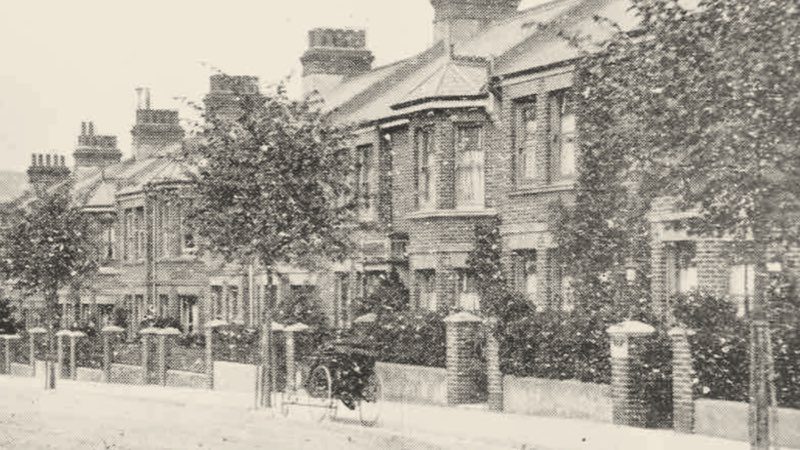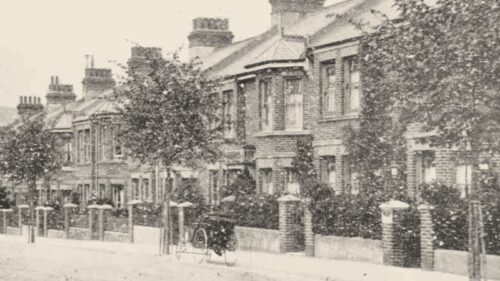
8 Fragments That Remain
“Gather up the fragments that remain.”—John 6:2
A Christian is one who is born from above; therefore his desires aspire to heaven, his affections are fixed on Christ, and his understanding is illuminated, to see that nothing short of the blood of God’s dear Son can cleanse him from sin; and that no other righteousness can justify him before God, but that which Christ wrought out, God the Holy Ghost reveals, and God the Father imputes to sin-sick souls: he is one who hates all sin, contemns himself, loves holiness, prizes communion with a Triune God, while every truth of the Holy Scriptures is dear to his heart.
A Christian feels that the greatest enemy he has to encounter in this world, is himself; and knows, that though self often deceives him, yet self he as often makes an idol, falls down and worships it.
A Christian is one who meets with much persecution, for his holy fervour and heavenly zeal in contending for pure truth. Many are the hard names with which he is often branded, by flimsy professors, who would be very glad to see him fall into sin. But though falsely designated “an Antinomian,” he knows the doctrines of grace in their vital power and efficacy in the heart, so that the doctrines being holy, they have a correspondent effect upon his mind; being heavenly, he soars above this vain world; being spiritual, the lust and depravity of his nature causes him constant pain; yea, being majestic, he is not greatly moved amidst the world’s frowns, the devil’s rage, and his own changeable frames and feelings; but knows what it is to triumph over all by precious faith. As universal charity is not what is inculcated in the Bible, nor known by the teachings of the Holy Ghost, so he is one who is constrained to differ from the great bulk of professed Christians who are contemporary with him, and who prefer external appearance to internal evidence, and are concerned more about the conversion of others than the salvation of their own souls.
Good works are much talked of by those who have “the form of Godliness,” but are rightly understood and practiced by none but such as are heaven born, heaven taught, and heaven kept.
Good, works are like a shadow, which is produced by light shining upon a dark body. Where there is no light, there can be no shadow; but when God lights up the lamp of truth in a sinner’s heart, nothing can extinguish it, nor prevent his manifesting it, more or less, in his walk and conversation.
One reason why free-willers are so fond of talking about what they are to “do,” is, because they “do” anything but live upon Christ.
As God’s quickened children are daily learning that they can do nothing, they are more desirous to hear of what Christ has done, when men attempt to preach the gospel, than of what they are to do.
God’s grace is too pure to die, too strong to need man’s help, and too rich to need creature improving.
One spiritual desire after Christ is worth more than ten thousand times ten thousand worlds; because it proves the professor to be a vessel of mercy, a favorite of heaven, and an heir of God.
Christ has declared, Not every one that saith unto me, Lord, Lord, shall enter into the kingdom of heaven; but he that doeth the will of my Father, which is in heaven,” Matt. 7:21. There are many ways by which men say, “Lord, Lord;” who, notwithstanding, will never enter heaven. He who has the name of a Christian, but never takes up his cross to follow Christ, says, “Lord, Lord;” he who says prayers but never prays, says, “Lord, Lord;” he who reads the Scriptures, but never enters into the spirit of them, says, “Lord, Lord;” he who will never loose anything for Christ, and yet professes to follow him, says, “Lord, Lord;” he who changes his religion according as he gains or loses by it, says, “Lord, Lord;” he who sits under the preaching of the gospel, but never tastes, handles, or feels the word of life, says, “Lord, Lord.” But as it is the will of the Father, that Christ shall, in all things, have the pre-eminence; so they do his will who prefer Christ’s righteousness to their own, and glory alone in his finished salvation. As it is the Father’s will, that all whom he has given to Christ, shall come to him; so they do his will who come to him, as ruined sinners, for deliverance: as worthless rebels, for perfection: as sin-burdened souls, for rest: as destitute criminals, for life: and as forlorn refugees, for shelter. As it is the will of God the Father, that all his children shall be justified by faith without the deeds of the law; so they do his will who possessing an inwrought persuasion of the freeness, suitability, and sufficiency of Christ’s righteousness to justify before God, “count all things but loss for the excellency of the knowledge of Christ Jesus,” and embrace his righteousness for want of a covering.
Christ is God’s word to his church, and the church’s word to God. He is God’s word of love to the church, because God could not express his love to her in any other way than by giving Christ. In him he treasured up all his love, as the safest storehouse that Infinite Wisdom could discover, and as the only suitable medium through which it can be communicated. He is God’s word of mercy to his church, being the only way by which pardon arises, peace flows, and health springs. He is God’s word of Grace to his church, being the only person through whom “grace reigns unto eternal life.” And he is the church’s word to God, for she has no other place before God on earth, but the name of Jesus; and when in heaven, Christ’s blood will be her only song, and his righteousness her only dress. Afflictions can never do a believer harm, because they are in the management off’ none but his heavenly Father, who sends them to profit and not to destroy; and must accomplish that for which he sends them, because every one of them is in his own hands to remove, to lessen, or increase, as he pleaseth.
A quickened sinner can never perish, because God dwells in him; and as there is no variableness nor shadow of turning in God, he does not enter a sinner today, and go out tomorrow, but enters to dwell for ever; the devil cannot drive him out, the world cannot force him out, and the man cannot sin him out.
Invitation:
O ev’ry hungry, thirsty soul,
Panting to know the Lord:
Jesus alone can make you whole,
And food to you afford.
In his rich covenant of grace,
All that you need is given,
For you are of his chosen race,
To whom is promised heav’n.
Here’s precious blood to cleanse from filth,
Here’s love to melt your heart;
Here’s righteousness to justify,
Which can’t from you depart.
In Christ is all the strength you need,
In him all wisdom’s stor’d;
Dear trembling souls, for you he bled,
Then be his name ador’d.
William Tant (?) was a High-Calvinist gospel preacher. He served as pastor for the church meeting at Jireh Chapel, Robert Street, Brighton.




